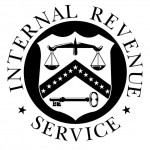 Lauryn Hill is a popular hip-hop and soul musician who rose to fame as the lead singer of The Fugees in the mid-1990s. The Fugees’ second album, The Score, sold over six million copies in the U.S. and more than 17 million copies worldwide. The band split up soon thereafter and Hill released a solo album, The Miseducation of Lauryn Hill to even greater acclaim and success. “Miseducation” won five Grammy Awards, spent 81 weeks in the Billboard 200, and topped out at 18 million in worldwide sales.
Lauryn Hill is a popular hip-hop and soul musician who rose to fame as the lead singer of The Fugees in the mid-1990s. The Fugees’ second album, The Score, sold over six million copies in the U.S. and more than 17 million copies worldwide. The band split up soon thereafter and Hill released a solo album, The Miseducation of Lauryn Hill to even greater acclaim and success. “Miseducation” won five Grammy Awards, spent 81 weeks in the Billboard 200, and topped out at 18 million in worldwide sales.
Following its release, Ms. Hill largely disappeared from the public eye to raise her six children, five of whom she had with Rohan Marley, the son of reggae legend Bob Marley. Despite her low profile, Ms. Hill earned over $1.8 million between 2005 and 2007, mostly from recording and film royalties.
In June 2012, Ms. Hill was charged with tax evasion for failing to file income tax returns for the years 2005 through 2007. She faced a prison sentence of up to three years (one per unfiled return). Ms. Hill pled guilty to the charges and promised to pay back the taxes she owed. During her trial she criticized the over-commercialization of the music industry and cited the safety of herself and her family as reasons for stepping back from her career.
Ms. Hill signed a recording contract with Sony to help pay her tax liabilities of over $900,000 but her sentencing hearing was delayed for two weeks because she had still not paid the back taxes. At sentencing the judge also considered Ms. Hill’s failure to pay her 2008 and 2009 tax liabilities and sentenced her to three months in prison with a $60,000 fine. A day before entering prison, Hill released a long letter addressing racism, slavery and the IRS.
Ms. Hill was released from prison last fall and is currently on tour across the U.S. She will be in Washington, D.C. on February 9 and Atlanta on Feb. 13
 In Route 231 LLC v. Commissioner, the Tax Court found that a partnership’s transfer of Virginia Preservation Tax Credits to a partner who agreed to make a capital contribution of 53¢ for every $1 of tax credit received in exchange for a 1% partnership interest and the credits was not a capital contribution followed by an allocation of credits but rather was a disguised sale under IRC § 707, taxable to the partnership as income.
In Route 231 LLC v. Commissioner, the Tax Court found that a partnership’s transfer of Virginia Preservation Tax Credits to a partner who agreed to make a capital contribution of 53¢ for every $1 of tax credit received in exchange for a 1% partnership interest and the credits was not a capital contribution followed by an allocation of credits but rather was a disguised sale under IRC § 707, taxable to the partnership as income.



